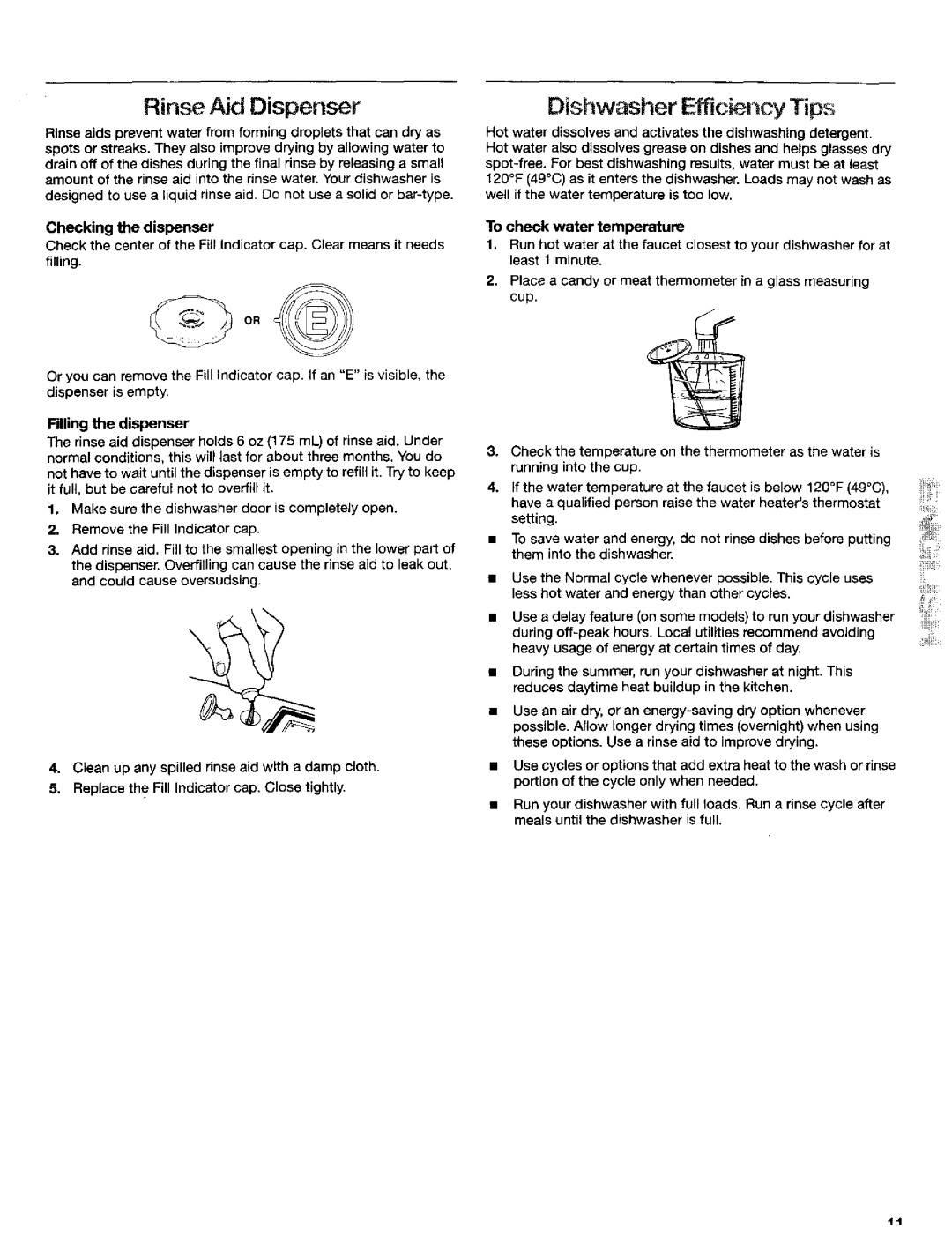
Rinse Aid Dispenser
Rinse aids prevent water from forming droplets that can dry as spots or streaks. They also improve drying by allowing water to drain off of the dishes during the final rinse by releasing a small amount of the rinse aid into the rinse water. Your dishwasher is
designed to use a liquid rinse aid. Do not use a solid or
Checking the dispenser
Check the center of the Fill Indicator cap, Clear means it needs filling.
OR
Dishwasher Efficiency Tips
Hot water dissolves and activates the dishwashing detergent. Hot water also dissolves grease on dishes and helps glasses dry
120°F (49°C) as it enters the dishwasher. Loads may not wash as well if the water temperature is too low.
To check water temperature
1.Run hot water at the faucet closest to your dishwasher for at least 1 minute.
2.Place a candy or meat thermometer in a glass measuring cup.
Or you can remove the Fill Indicator cap. If an "E" is visible, the dispenser is empty.
Filling the dispenser
The rinse aid dispenser holds 6 oz (175 mL) of rinse aid. Under normal conditions, this will last for about three months. You do not have to wait until the dispenser is empty to refill it. Try to keep it full, but be careful not to overfill it.
1.Make sure the dishwasher door is completely open.
2.Remove the Fill Indicator cap.
3.Add rinse aid. Fill to the smallest opening in the lower part of
the dispenser. Overfilling can cause the rinse aid to leak out, and could cause oversudsing.
4.Clean up any spilled rinse aid with a damp cloth.
5.Replace th e Fill Indicator cap. Close tightly.
3, Check the temperature on the thermometer as the water is running into the cup.
4.If the water temperature at the faucet is below 120°F (49°C), have a qualified person raise the water heater's thermostat setting.
To save water and energy, do not rinse dishes before putting them into the dishwasher.
Use | the Normal | cycle whenever possible. This cycle uses | il |
less | hot water | and energy than other cycles. |
|
Use a delay feature (on some models) to run your dishwasher during
During the summer, run your dishwasher at night. This reduces daytime heat buildup in the kitchen.
Use an air dry, or an
Use cycles or options that add extra heat to the wash or rinse portion of the cycle only when needed.
Run your dishwasher with full loads. Run a rinse cycle after meals until the dishwasher is full.
.11
